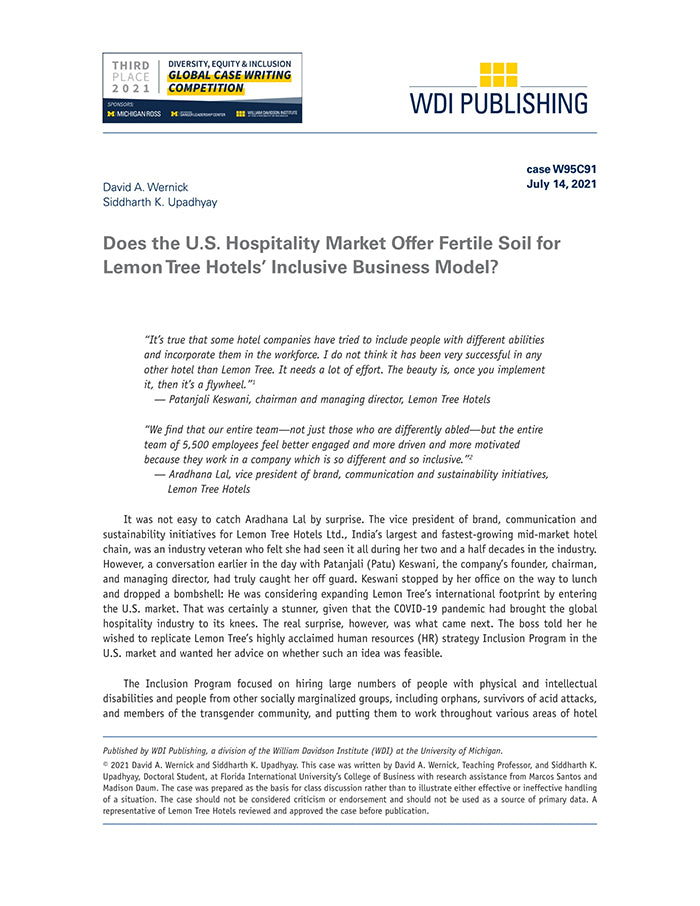Does the U.S. Hospitality Market Offer Fertile Soil for Lemon Tree Hotels' Inclusive Business Model?
受取状況を読み込めませんでした
Third Place Winner; DEI Global Case Writing Competition. This case focuses on Lemon Tree Hotels, a leading Indian hotel company that employs large numbers of people with disabilities and other socially marginalized groups including orphans, divorcees, widows, survivors of acid attacks, and members of the transgender community. Unlike other hoteliers, Lemon Tree puts these "opportunity deprived Indians" (ODIs) in front-line positions. Launched in 2007 as a charitable endeavor, this unusual human resources strategy (Inclusion Program) has evolved and is now an integral part of Lemon Tree's business model and a source of competitive advantage. The case centers on Lemon Tree Vice President, Aradhana Lal, the program's chief architect. She has just received surprising news from the company's chairman and founder: He is considering expanding Lemon Tree's international footprint by entering the U.S. hotel market and would like to replicate the Inclusion Program there. He asks for her advice. Lal finds the idea intriguing yet sees major strategic, operational, and financial challenges and risks. Students will gain knowledge not only of the various corporate disability and inclusion initiatives being undertaken in the hospitality sector, but how diversity, equity, and inclusion (DEI) programs can be a source of competitive advantage for companies in a variety of consumer-facing industries.
【書誌情報】
ページ数:20ページ
サイズ:A4
商品番号:HBSP-W95C91
発行日:2021/7/14
登録日:2021/10/12


